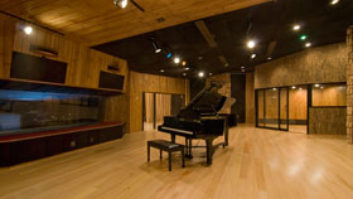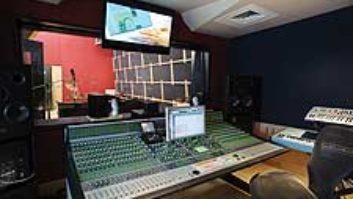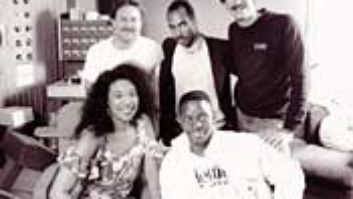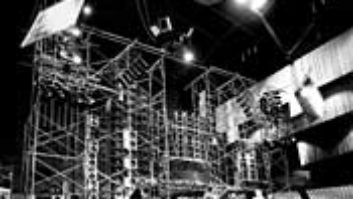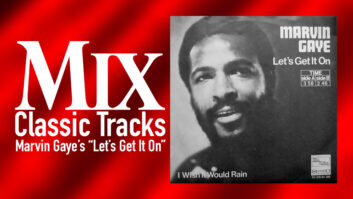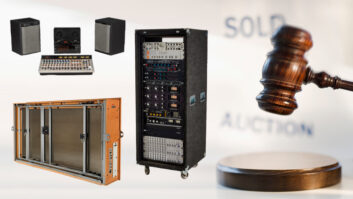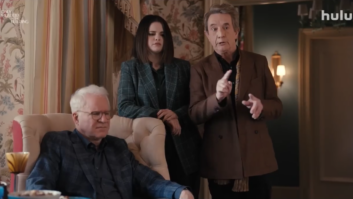Croton-On-Hudson, NY (June 15, 2015)—The Clearwater Festival—officially known as Clearwater’s Great Hudson River Revival—is one of the longest-running multi-day musical events in the Northeast. Held every June in Croton Point State Park in Croton- On-Hudson, NY, an hour outside New York City, the annual festival was originally founded in 1966 by Toshi Seeger and her husband, folk music legend Pete Seeger, as an effort to raise awareness—and money—for cleaning up the heavily polluted Hudson River. Today, the festival is run by Hudson River Sloop Clearwater, Inc., a non-profit involved in environmental research, education and advocacy for protecting the famous waterway.
The main stage of the 2014 Clearwater Festival, the Rainbow Stage found Klondike Sound providing audio via a purposefully minimal L-Acoustics V-Dosc system. While its roots are in folk music, the festival offers a range of musical styles, from Americana to blues to jazz and various indigenous genres from around the world. The June 20- 21, 2015 edition will present the likes of Guster, Neko Case, The Mavericks, Ani DiFranco, the Blind Boys of Alabama, Béla Fleck, David Crosby, Los Lobos, Kate Pierson of the B52s, Shelby Lynne and Angélique Kidjo— and that’s just some of the acts on the main “Rainbow” stage, one of seven that run simultaneously across the park.

Keeping an eye on innumerable aspects of the event every year is production manager John Doerschuk, who keeps track of dozens of acts, seven stages, multiple sound companies and more. Whatever problems might arise, however, he’s probably seen them before, as he’s been part of the Clearwater team since 1979.
“My festival days go better the more time I put in up front,” he laughed. “I work full-time at Terry Hanley Audio in Boston—one of the big regional sound contractors up in New England. We do a tremendous amount of work for all the universities, so it can get a little hard for me to advance the Clearwater Festival around all the commencements, but somehow I find cracks in my time to do everything. I’m talking on the phone constantly with artists about last-minute stuff—backline needs and transportation and access and garment hangers and irons and all the usual craziness. Last year, it just seemed like I had an extra week to tie up things, so I was sure it was going to be a major disaster.”
That never happened, much to Doerschuk’s relief, but there were still tough choices to be made. While every stage had enough PA to cover the crowd nicely, the systems were starkly modest—and that was by design. Power was a serious issue as only few hundred amps of electricity come into the park, which is on a peninsula. “We do bring in generators, but being an environmental festival, there’s hard decisions to be made about that,” Doerschuk admitted. “The pressure from these big acts to provide enormously powered systems and amenities can sometimes be in conflict with a scaled-down, grassroots, ‘green’ festival. That’s a dance we’ve played for many, many years.”
While Doerschuk brings in a smidge of gear from Hanley Audio “to service some of the smaller stages and just smooth the production,” Klondike Sound (Greenfield, MA) is the longtime main sound vendor for the festival, having been involved in Clearwater since the 1980s. “Klon [owner John Koehler] has a long reputation of excellence in festivals; he’s the audio manager for the New Orleans Jazz Festival, and he’s the vendor for many others,” said Doerschuk. Bringing clean sound to the Rainbow stage for the 2014 edition, the company fielded an L-Acoustics rig, with hangs of six V-Dosc and three dV-Dosc boxes per side, sending out mixes from an Avid Venue SC48 and a Yamaha PM5D at the FOH position.
Klondike Sound also handled the Dance and Hudson stages, where for the latter, it had a Yamaha QL5 console at FOH and another L-Acoustics-oriented system based around a groundstacked half-dozen dV-Dosc boxes and two dV-Subs per side. There, acts like Houndmouth brought harmony-drenched blues rock to an appreciative crowd that included boats anchored on the shore within the dispersion pattern of the PA, which was slightly angled out into the river.
Over at the Sloop Stage, one of the highlights was Pete Seeger’s Spanish Civil War Song Legacy with Bernardo Palombo and Hudson Valley Sally. FOH was centered around a Yamaha CL5 console supplied by Ridgefield Park, NJ-based Boulevard Pro, sending mixes to groundstacked pairs of dV-Subs topped with three dV-Dosc boxes each. While it was Boulevard Pro’s first year tackling the Sloop Stage, it, too, has been involved with Clearwater for a while, and provided a full backline package for five stages.
Toshi and Pete Seeger passed away in 2013 and 2014, respectively; while that meant performances throughout the 2014 edition were packed with tributes to them and their life-long efforts for environmental education, behind the scenes, organizers also honored them by continuing their work.
“I know it sounds ridiculously idealistic,” said Doerschuk, “but Pete completely embodied the idea of people gathering in groups and just being joyous and talking about what they can do to change the world—so every time I’m trying to think of how to pull this festival together along with Steve Lurie, who is a fantastic festival director, we often say, ‘Well, what would Toshi do? How do we honor Pete’s legacy?’ It’s not how do we sell enough tickets or how do we get a McDonald’s sponsorship, you know what I mean? It’s not a business proposition—it’s better.”
Clearwater Festival
Clearwaterfestival.org
L-Acoustics
L-acoustics.com
Klondike Sound
Klondikesound.com
Boulevard Pro
Blvdpro.com
